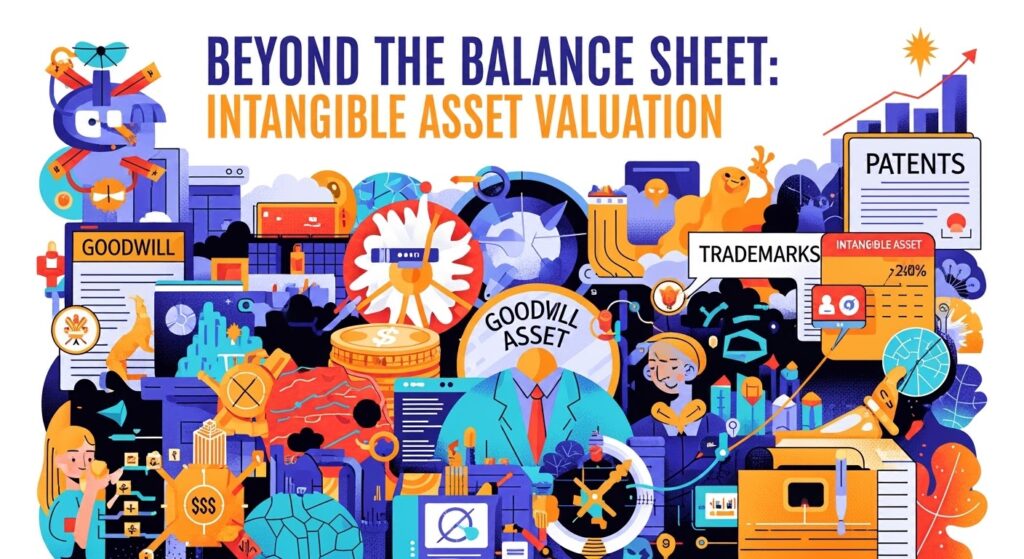UNLOCKING THE POWER OF BOOKS & ACCOUNTS IN VALUATION: A STRATEGIC GUIDE FOR ASPIRING REGISTERED VALUERS
By Er. Sundeep Bansal
Published by: CEV Techno News, Renowned Newspaper for Engineering & Valuation Practice For Professionals in Engineering, Valuation, and Land Administration
In the dynamic world of asset valuation, accuracy, compliance, and professional acumen form the core of a valuer’s responsibility. As the valuation profession in India becomes more regulated and standards-driven under the ambit of the Insolvency and Bankruptcy Board of India (IBBI), the role of a Registered Valuer (RV) has evolved into a specialized discipline requiring not just theoretical understanding, but a deep-rooted command over financial analysis, regulatory frameworks, and practical insight.
Recognizing this imperative, the Council of Engineers and Valuers (CEV), in collaboration with CEV IAF RVO, has released a comprehensive educational video aimed at demystifying one of the most critical elements of valuation practice — the use of books of accounts and financial records in valuation analysis.
📊 Why Books and Accounts Matter in Valuation
The foundation of any valuation exercise lies in the analysis of reliable financial data. The books of accounts, which include financial statements, ledgers, trial balances, and other statutory records, provide valuable information about a company’s:
-
Assets and Liabilities
-
Revenue and Expenditure Trends
-
Profitability and Cash Flow Patterns
-
Capital Structure and Equity Position
-
Working Capital Cycle
-
Key Financial Ratios and Indicators
Each of these components contributes significantly to deriving the fair value, market value, liquidation value, or other bases of valuation, depending on the context and purpose under Indian laws such as the Companies Act, 2013, Income Tax Act, 1961, and the IBBI (Valuation) Rules, 2017.
🧠 Learning Outcomes of the Video: Key Highlights
This latest educational resource equips valuation professionals with a structured approach to financial data analysis, tailored to meet the rigorous expectations of the IBBI Registered Valuer Examination. Key takeaways include:
-
Understanding the Role of Financial Records
An overview of how financial records align with valuation objectives and how to verify the credibility and authenticity of data as per Indian accounting standards (Ind AS) and applicable auditing guidelines. -
Step-by-Step Analytical Techniques
Learn how to dissect and interpret balance sheets, income statements, and cash flow statements using a logical and methodical approach, ensuring data-driven valuation conclusions. -
Real-World Case Scenarios
Practical illustrations of valuation situations across different asset classes — including Land & Building, Plant & Machinery, and Securities or Financial Assets (SFA) — give viewers the contextual clarity needed for on-ground application. -
Common Pitfalls and Mistakes to Avoid
The video outlines typical errors made by valuation professionals during financial interpretation and offers corrective strategies backed by best practices in the industry. -
Asset-Specific Valuation Techniques
Tailored insights for each asset class with specific emphasis on the treatment of depreciation, capital work-in-progress, intangible assets, and non-operating income/expenditure — all in accordance with Indian legal and regulatory frameworks.
📚 Alignment with IBBI Syllabus & Legal Mandates
Under Rule 7A and Annexure IV of the Companies (Registered Valuers and Valuation) Rules, 2017, the IBBI mandates a comprehensive syllabus for aspiring Registered Valuers. The financial analysis of books and accounts is a core module, especially for candidates from all three asset classes.
The video is designed to supplement this learning, providing candidates with a robust understanding of financial mechanics from a valuation perspective. Additionally, it adheres to the ethical and disclosure standards prescribed by Valuation Standards issued by ICAI, IOV, and other RVOs, and draws upon guidance from recent NCLT rulings, SEBI guidelines, and RBI circulars, wherever relevant.
🎓 A Resource for Students, Professionals & Academia
Whether you are a valuation student preparing for the IBBI Exam, a practicing engineer venturing into valuation, or a finance professional enhancing your analytical capability, this video serves as a critical knowledge enabler.
It also acts as a teaching resource for universities and institutions offering valuation courses under the UGC’s model curriculum for valuation education.
🔔 Stay Updated with CEV & CEV IAF RVO
The Council of Engineers and Valuers and CEV IAF RVO remain committed to promoting excellence and regulatory compliance in the field of valuation. By delivering accessible and high-quality educational content, we aim to empower the next generation of valuers with the tools necessary to meet India’s growing demand for professionally qualified valuation experts.
To access the full video, subscribe to our official YouTube channel and stay tuned for more expert-led lectures, exam strategies, industry case studies, and valuation insights.
About the Author:
Er. Sundeep Bansal is a Chartered Engineer and an IBBI-registered valuer under the Companies Act, with a specialization in Real Estate. He regularly advises on complex valuation disputes, tax planning, and regulatory compliance, and is a contributor to leading industry journals.



